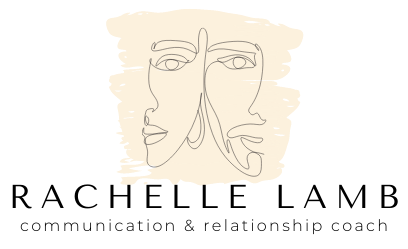A Language Of Life
February 7, 2018 marks three years since the death of Dr. Marshall Rosenberg, author of the highly acclaimed best seller Nonviolent Communication: A Language Of Life. Rosenberg’s seminal work continues to be utilized as a powerful tool to help people effectively resolve conflict, and yet it was also his dream that NVC be a tool for social change.
After nearly 20 years of offering NVC trainings and coaching, it would be naïve of me to say that a focus on the social change dimensions of NVC when presenting is an easy sell. It's not. And that is because we in the developed world have been educated to be primarily concerned with our own well being. We want to concentrate on what's working for us personally and we want to fix what’s not working, quickly. We are less interested in the bigger picture, especially if it means making changes that are uncomfortable. It’s both understandable and unfortunate.
One of the things that set a physician apart from his or her peers is an ability to make accurate diagnoses. When a patient seeks relief from an ailment, does the physician view the human body as a machine, as an assembly of parts? If so, medication will likely be prescribed to treat the symptoms on the basis of physical symptoms alone. For example, anti-depressants for depression or blood pressure medication for hypertension. Alternatively, does the physician view the human body and soul as belonging to a larger living landscape that influences and impacts the health of the individual? If so, the physician will likely question the patient about his or her life in various areas in order to make a more comprehensive diagnosis followed by a holistic line of treatment. Food choices, exercise, lifestyle, relationships, work environment and stress levels will likely be discussed.
Most of what afflicts us is rooted in forces far more broad and complex than the symptoms that present to us. The loss of connection that prevails in so many areas of our lives can be attributed largely to the loss of connection between ourselves and the earth, and also to the loss of village. It could be said that we have become so accustomed to unnatural ways of living and being that we don't really know what we need in order to lead healthy lives and cultivate healthy relationships. Would we even recognize genuine healthy connection and belonging if we saw or it? Worse still, would we even welcome it?
Writer D.H. Lawrence wrote: "Oh what a catastrophe, what a maiming of love when it was made a personal, merely personal feeling, taken away from the rising and setting of the sun, and cut off from the magic connection of the solstice and equinox. This is what is the matter with us. We are bleeding at the roots, because we are cut off from the earth and sun and stars, and love is a grinning mockery, because, poor blossom, we plucked it from its stem on the tree of life and expected it to keep on blooming in our civilised vase on the table."
Let’s recognize that questions like how do I get my child to cooperate? or how do I get my partner to open up? or how do I deal with anger? represent challenges that best approached holistically. Interdependence and interconnection IS the way of life. This means that our conduct with each other and the words we speak do not occur in isolation, but that they are rooted in a relational mosaic that is coloured by a complex network of influences and variables that, while impossible to fully untangle, nevertheless need to be acknowledged and considered.
For me, teaching NVC in these troubled times has become an exploration into the larger socio-cultural narrative that is the breeding ground for disconnection. It’s all too easy to conclude that our spouse or child or co-worker are at fault when tensions rise between us. Fortunately an expanded approach doesn’t diminish the importance of taking an earnest look at what transpires between people and developing skills to better navigate relationships. It’s hugely relevant and core to what I teach. However I have found that people become much more discerning, generous, compassionate and resourceful when they explore the larger landscapes in which their lives and relationships unfold at the same time that they develop those skills.
Rachelle Lamb’s lifelong interest in human development, relationship dynamics and the roles that culture and ecology play in people's lives, along with her ability to skillfully pave the way for transformational dialogue between people consistently produces powerful learning experiences for individuals and audiences. She lives in Victoria BC. Learn more about her at www.RachelleLamb.com.



